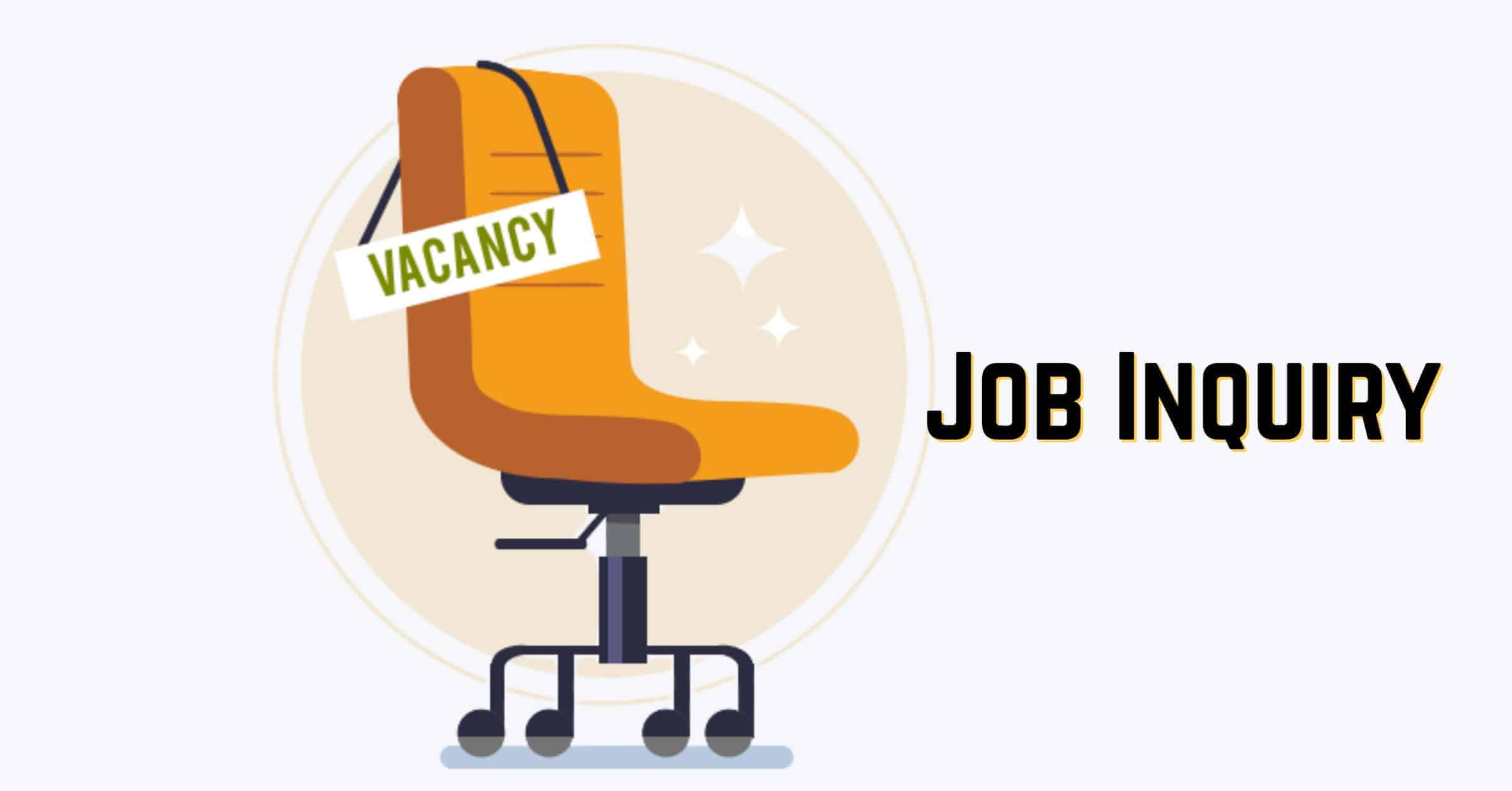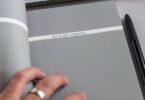Job Inquiry emails are an excellent approach to engage with organizations for potential positions when passively job-hunting. Job inquiry emails inform employers that you are interested in working for them, whether or not they have any openings. They’ll keep your résumé on file and contact you if your skills match their requirements. We’ll go over what a job inquiry email is, why they’re important, and how to draft one with an example in this article.
What is a job inquiry email?
Emails sent to businesses that haven’t publicized employment openings are known as job inquiry emails. Job seekers attach their resumes, discuss their qualifications, and express their desire in working for the organization in these emails. A hiring manager is more likely to see your resume during a period of no hiring. They keep resumes they like on file until the employer starts interviewing for an available position.
How to write a job inquiry email?
It’s simple to write a job inquiry email, but doing so correctly involves research and editing. When composing a job inquiry email, follow these steps:
1.Do some market research
Even if you send a job inquiry email to a company you’re familiar with, do some additional research on them. Look into their history, company structure, and, if feasible, the identities of their executives or hiring managers outside of their website. If you know who your email is going to, including professional information or information about their interests will help them pay attention to your message. For example, you may realize that you have a passion for tennis while reading a recruiting manager‘s biography. Mention it in the inquiry and see what happens.
- Make a rough draft of your story.
Treat your job inquiry email like a business letter. Write several drafts, extensively correcting each one. Remove sentences or phrases that are off-topic or appear unprofessional and replace them with useful information. This email should be treated as your first interview with the employer, as it is their initial impression of you.
3.Write the first sentence
A smart job inquiry email’s first line expresses the message’s purpose. Introduce yourself and make it obvious that you’re writing to inquire about a job. If possible, also include a brief explanation of your interest in this particular company.
4.Make formal statements
Keep your language professional, even if you’re sending this email to a modern company that uses a casual tone in its marketing. You’re not addressing them as a marketer or a possible client. Instead, you’re approaching them as an industry expert who could one day represent them. Consider this email to be an interview, and maintain a formal tone and approach throughout.
5.Include a CV and cover letter with your application
Make sure you attach a résumé and a cover letter to your job inquiry email before sending it. Employers often have questions that only resumes and cover letters can answer, even if you discuss your abilities and qualities in the body of the message. Even if they don’t have any present openings for you, they will keep your resume on file for future opportunities.
Job inquiry email Template
When composing your next job inquiry email, use the following template:
1.Heading
The first paragraph serves as a heading. This is where you address the hiring manager or any other individuals who may be reading your email directly. Because you’re addressing them directly, getting specific names often provides the employer a more favorable impression of you. It demonstrates that you spent time researching them.
2.Introduction
Your introduction is in the second section. Include your first phrase, which includes your name and the message’s purpose. If necessary, add more sentences, but keep it brief and no more than three sentences. Use the example sentence provided above as a starting point.
3.Body
Your body is represented by the third portion. This section’s length may vary based on the industry, but it should not exceed three paragraphs (or 15 sentences in total). Use this part to expand on your interests and provide a high-level summary of your credentials.
4.Statement of conclusion
The fourth section contains your closing remarks and calls to action. In most cases, here is where people inform the reader that a résumé and cover letter would be attached. Make this a prominent remark in your communication, as attachments are frequently overlooked if not explicitly stated.
5.The formal conclusion
The fifth and last component of your message serves as the formal conclusion. You close with a friendly and formal greeting, followed by a list of your name, address, and contact information. Include times when you are available for phone conversations or provide a link to a meeting provider if necessary.
Example
The following is an example job inquiry email sample using the previous template:
“Dear Shining Star and the rest of the hiring team at Planets and co.
My name is Jupiter Mass, and I’d like to inquire about job options as a long-time admirer of your company’s work in genetic research.
I’m looking for a full-time position at your company as a recent graduate of the South Indian Genetic Institute. I’m a biologist who specializes in animal biology, and I’ve been following your recent progress in recovering DNA from extinct species like Condors with great interest. My studies into osteoporosis and other bone diseases, I believe, could help you further your work with recently extinct species.
My colleagues and I devised novel techniques for collecting and analyzing DNA from bone components. I am a strong prospect for future roles within your labs, given my prominent qualifications and research.
For your convenience, I’ve attached my résumé and cover letter. Please do not hesitate to contact me if you have any questions.
Best,
Jupiter Mass
jupitermass@email.com

Cold email job inquiry sample
There are several reasons why cold emailing is difficult. Many individuals are uncomfortable talking about themselves, and asking for something from someone with whom you do not have a close relationship might be difficult.
To understand what you want and how they might help, the recipient does not need to hear your entire life story. A great cold email consists of three important paragraphs, whether you’re expressing interest in a career opportunity or simply seeking mentorship.
An example of a perfect cold email is provided below, along with an explanation of what makes it so effective:
Example;
“Hello, Betsy,” says the narrator.
Alison Parker is my name. I work as a freelance scientific and psychology writer. I’ve written for a variety of publications, including [X], [Y], and [Z]. I’ve been doing this work for approximately three years, and I’m quite passionate about encouraging people to think critically about their surroundings.
When I told my former boss [X boss’ name], who you used to work with at [X company], that I was seeking a full-time job, she mentioned you. She informed me that your publication is looking for a senior science correspondent. I was delighted to hear your name, as I’ve been a long-time fan of your work! I particularly appreciated your cover article on the psychology of consumer spending that you wrote for [X name of publication] in 2016.
I applied for the job online, but even if it doesn’t work out, I’d want a 30-minute conversation to hear more about your expertise and what advice you have for young workers in this sector. This week, I’m available any time after 3 p.m. (ET) on Wednesday, Thursday, and Friday.
(P.S. I spotted your need for volunteers for the food drive at [X place] this weekend on Twitter.)
The email subject line for job inquiry is very vital. It’s frequently what determines whether a hiring manager opens an email and reads your resume or ignores it. As a job seeker or a job inquirer, you must make every effort to make your email stand out. So, consider what you’d like to say to a hiring manager, and write your way to a new job with a compelling job inquiry email subject line!
Consider the following five email subject lines for job inquiry:
- Use a strong hitter’s name.
- Make use of the job title and number.
- Include your most important expertise or professional certification.
- Make a list of your previous experiences.
- Express your thankfulness and intent
Linkedin Job Inquiry Message Example
The following are three examples of LinkedIn job inquiry letters
- How to Contact a Recruiter on LinkedIn (Example #1)
Hello, Recruiter.
Despite the fact that we have never met or had the opportunity to work together, I have heard nothing but good things about Their Company Name. I know you’re busy, but if there are any employment opportunities around Job Role, I’d appreciate the opportunity to discuss why I would be a good fit.
Thank you in advance for your consideration, and have a pleasant day!
{{YourName}}
- Follow Up – How to Message A Recruiter on LinkedIn (Example #2)
Hello, ‘FirstName,’
Thank you for connecting with us. I notice you work at Company Name as a recruiter, which is fantastic. I know you’re busy, but if you have a moment, I’d like to discuss whether my background qualifies me for Job Role in any of your offices.
Thanks!
- After Applying, How to Message a Recruiter on LinkedIn (Example #3)
Hello, ‘FirstName,’
My name is YourName, and I work in the field of your profession. If you have a moment, I’d appreciate the opportunity to explore how my SpecifiedSkill and experiences would be a good fit for the job role I’ve applied for in CompanyName.
Thank you for connecting with me, and I look forward to hearing from you soon!
I wish you a wonderful day!
Letter of Inquiry Job
Below is an example of how to write a letter of inquiry for a job;
Dear Allen,
I’ve been following your work for the past 10 years through news events, interviews, and web research. Your commitment to the media, as well as your appreciation of the critical role journalists play in today’s fast-paced information highway and your belief in the press’s power, is admirable.
I’ve got the opportunity to hone my journalistic skills in three distinct newspapers. When I graduated from college, I went to work for a typical small-town newspaper, where I learned all about getting the paper to the people on time.
I subsequently went on to work as a Regional Manager for a Midwest-based media conglomerate with small to mid-sized newspapers. I’m the Chief Correspondent for one of the top newspapers in the Southwest right now.
I’d want to meet with you to gain your opinion and thoughts on where my skills and abilities would be most useful to the ABD Organization, as well as to inquire about potential job possibilities with the company.
I eagerly await your response. Thank you for taking the time to read this.
John Seeker
Johnseekeremail.com
Response to job inquiry
There are various examples of responses to job inquiries based on the applicant’s current situation. Here are two examples;
1.You’re content with your current situation
Hi (Name),
What an intriguing job description – thank you very much for thinking of me as a good fit.
While I appreciate your attention, I am currently content with my position at (Your Company) and am not looking for a change of scenery at this time.
If the scenario changes in the future, I’ll make sure to contact you.
Thank you once again for your attention, and best wishes,
(Enter your name here)
In this case, keeping it short and sweet is usually the best policy. However, there may be someone else in your company who is interested. If this is the case, feel free to mention it in your response—but wait for their confirmation before telling your colleague.
2.The Job of Your Dreams!
Greetings (Name),
Thank you for contacting me and providing the details of this exciting opportunity. I’d like to learn more about it.
According to what I’ve gathered, you’re looking for someone who can (Skills Description) and has a track record in (Job Specifications/Objectives). As you can see from my resume, I am a good match in all of these areas and would enjoy the opportunity to learn more while working with you (Company Name).
I have advanced greatly and added (Core & Secondary Skills) that have to lead to (Time With Current Employer) (Mention Your Successes). While I have liked this position, it is time for me to advance, and I believe that (Company Name) is an excellent next step in my career.
I’d like to learn more about this position and can be reached at (List Times) on (Contact No. & email).
I eagerly await your response and thank you once again for your interest.
Sincerely yours,
(Name)
The preceding is a basic but powerful sample email to a recruiter. But keep an eye out for anything else you might use to assist provide a burst of color. It can be anything slightly relevant—shared schooling or prior employers are ideal—and you can just include it after your email. This would show that you have done your homework not only on the job but also on the recruiter, which is considered as a sign of essential networking skills nowadays.
Here is how to ask if a job position is available or you need different letter of interest samples for job positions.
Self-Inquiry before the job interview
Did you sneeze?
Yes, I rid myself of the imposter inside me.
Did you iron your shirt?
Yes, I used the steam of mother’s hate.
Did you wash your hands?
Yes, I learned my hygiene from a raccoon.
I prayed on my knees, and my knees answered with pain.
I gargled. I polished my shoes until I saw who I was.
I inflated my résumé by employing my middle name.
I walked to my interview, early,
The sun is like a ring on an electric stove.
I patted my hair when I entered the wind of a revolving door.
The guard said for a guy like you, it’s the 19th floor.
The economy was up. Flags whipped in every city plaza
In America. This I saw for myself as I rode the elevator,
Empty because everyone had a job but for me.
Did you clean your ears?
Yes, I heard my fate in the drinking fountain’s idiotic drivel.
Did you slice a banana into your daily mush?
I added a pinch of salt, two raisins to sweeten my breath.
Did you remember your pen?
I remembered my fingers when the elevator opened.
I shook hands that dripped like a dirty sea.
I found a chair and desk. My name tag said my name.
Through the glass ceiling, I saw the heavy rumps of CEOs.
Outside my window, the sun was a burning stove,
All of us pushing papers
To keep it going.
Conclusion
If you’re serious about finding that dream job, writing a job inquiry letter may be a better alternative than waiting for an open position to be announced by that organization. As a result, be proactive and take charge of your employment search. This might be exactly what you need to snag that dream job you’ve been looking for!









